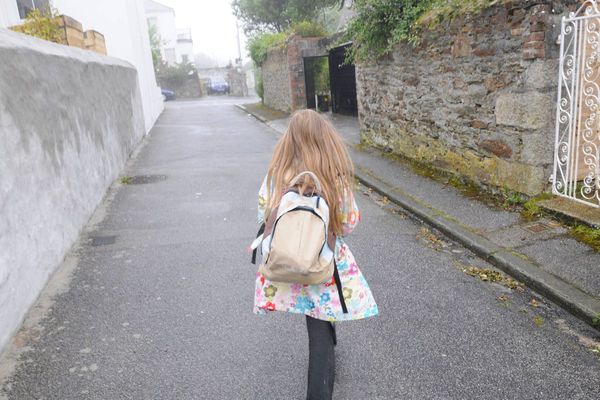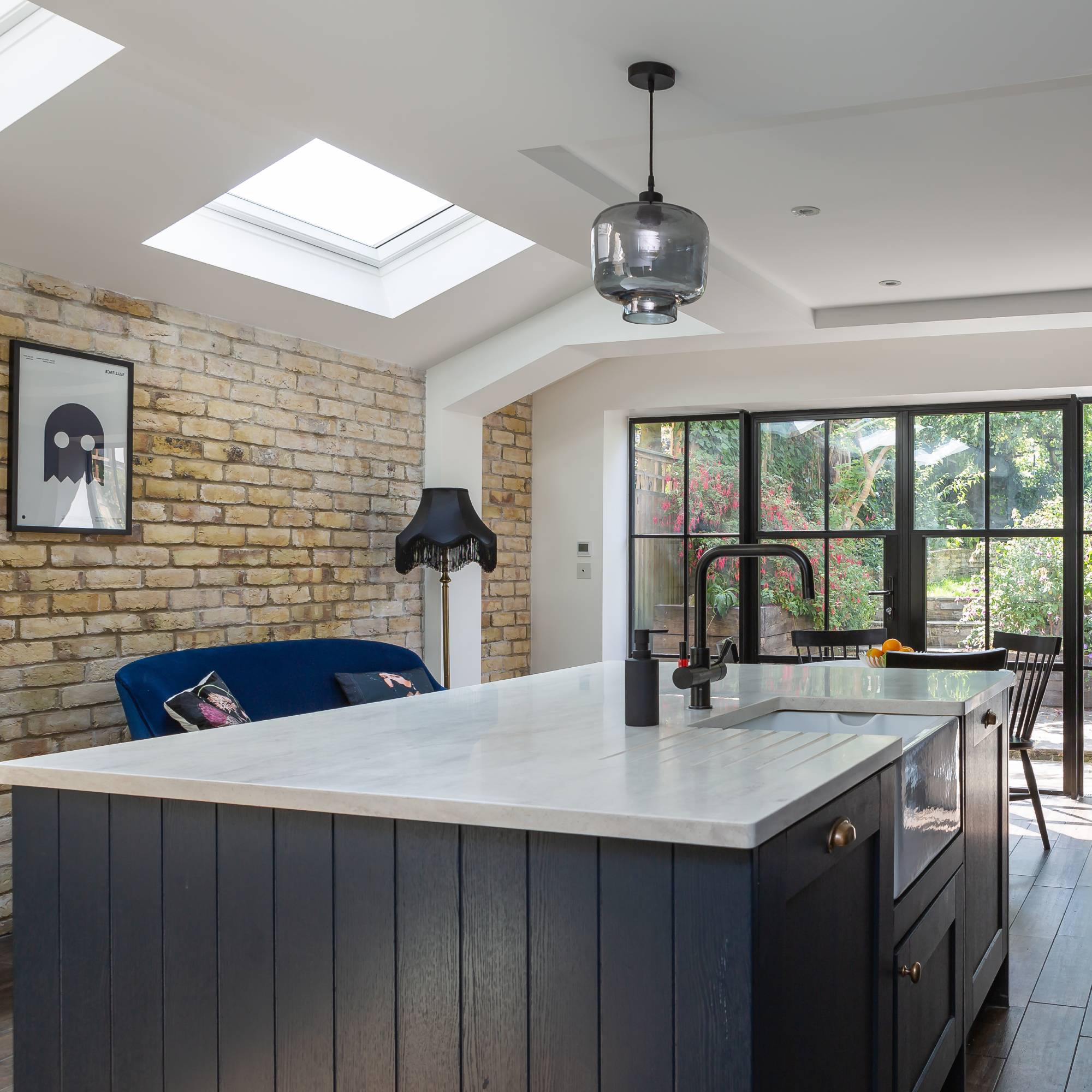
Taking on an extension project is hugely exciting. You get the chance to add your own stamp to your home; to reimagine and design it in a way that works for you and your family. And the good thing is extending isn’t a one-size-fits-all affair – rest assured that there are extension ideas for every budget.
There are many different types of extension projects – from a side extension to infill a small gap, a loft conversion to go upwards instead of out or a porch to make that cramped hallway just a little bit more workable.
How much an extension costs will come down to a number of factors, such as the materials you use, the shape and size of the build, the amount of glazing installed and where you are in the country (yes, this has an impact) but you can gauge costs on a per metre square basis. As a ballpark figure allow around £1,500-£2,500 per metre square, excluding 20% VAT.
Extensions less than £1,000 per sqm
Add a balcony
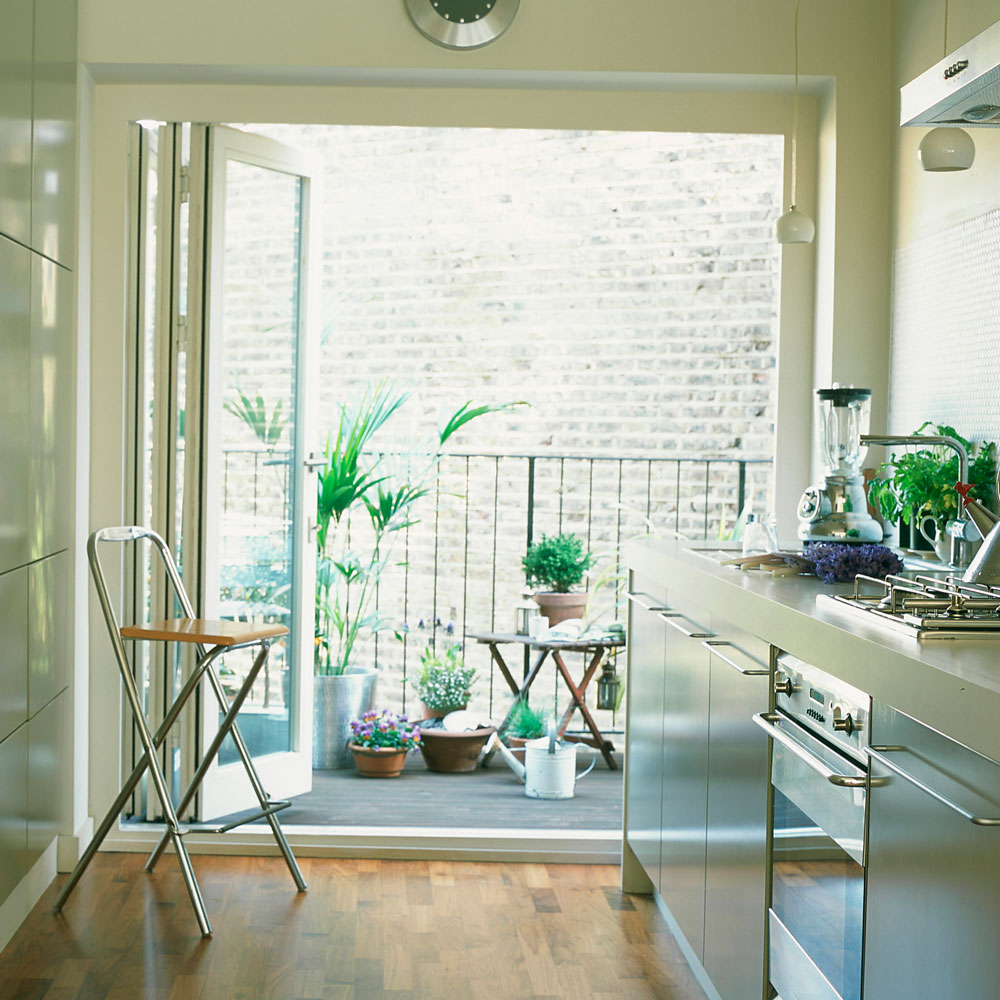
A balcony on the first floor will extend the space and bring in light and ventilation to a bedroom, first floor living room or even kitchen. For a stunning design feature opt for a contemporary glass balcony.
A weatherproof balcony will create an extra seating area and will also make the most of any views, all year round. Another extension idea for every budget. As a guide to budget glass balustrades start from £750 per linear metre, for a standard external balcony fixed to the floor.
Choose an atrium
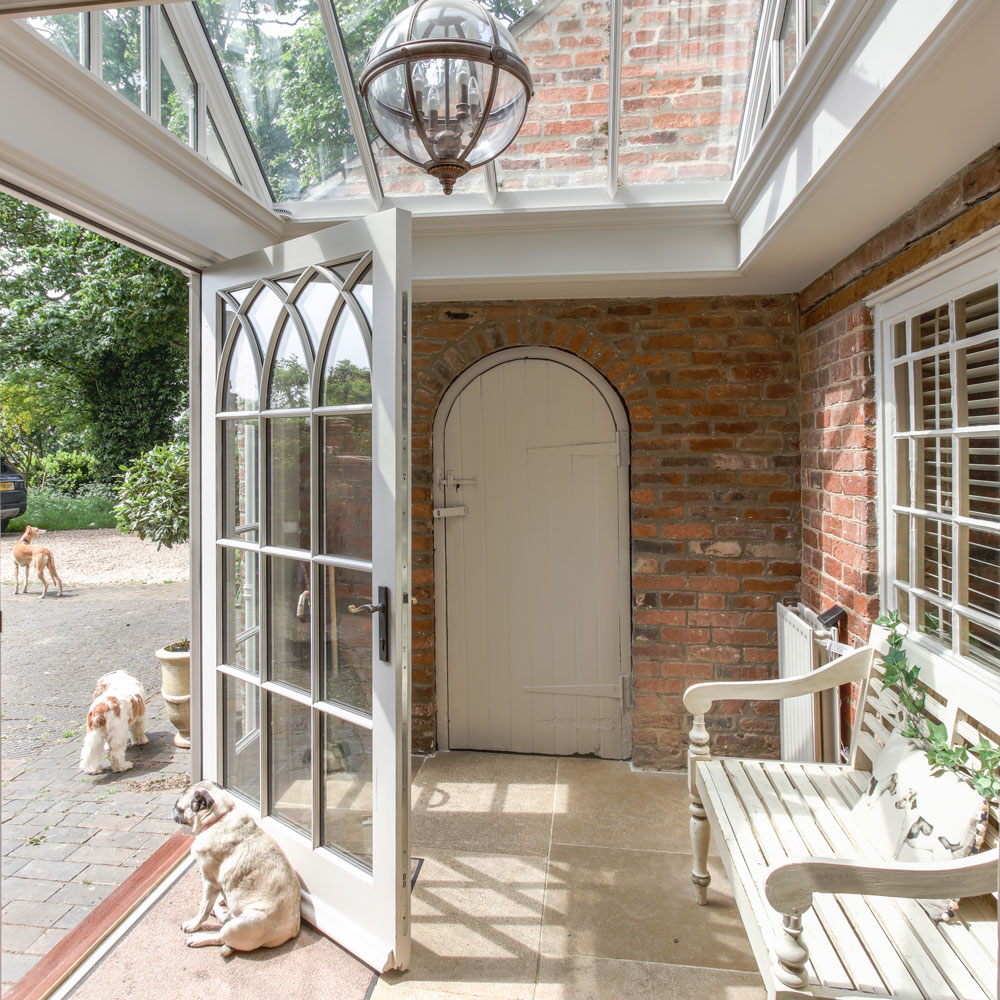
An atrium is another way of bringing in light and they are often used to create a design statement entrance. They are essentially a large open-air, skylight-covered space surrounded by a building, and can be made in all styles, contemporary or traditional. Structural glazing for atriums generally start at £1000 per m sq.
Try a porch extension
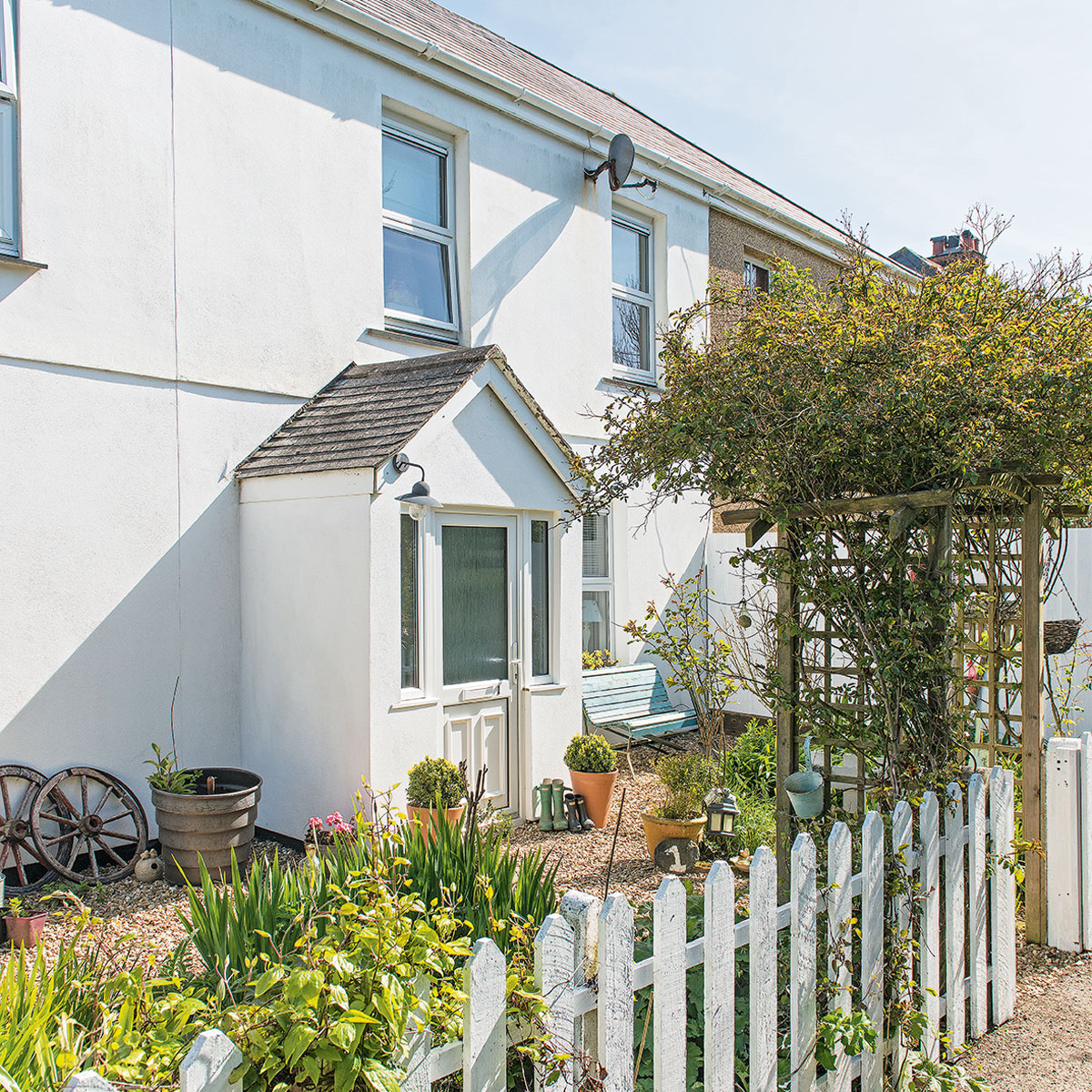
If your front door opens directly onto the living room, or you have a small hallway, a porch is a good option, it could be used for coats, shoes, bags and prevents dirty footprints being walked directly into the house. It is also a useful barrier from the elements.
A porch in keeping with your home could be an asset and could add value to your home, however, make sure the porch is in proportion, it shouldn’t be higher than 3m at the highest point and the ground area measured externally should not exceed 3 m2, but it should be no smaller than 2 m2 to make it worthwhile. It must also be over 2m from the road or boundary. You generally don’t need planning permission for a porch.
Adding a small front porch will cost from £2,000 to build, depending on requirements.
Extensions from £2-2,500 per sqm
Single storey extensions
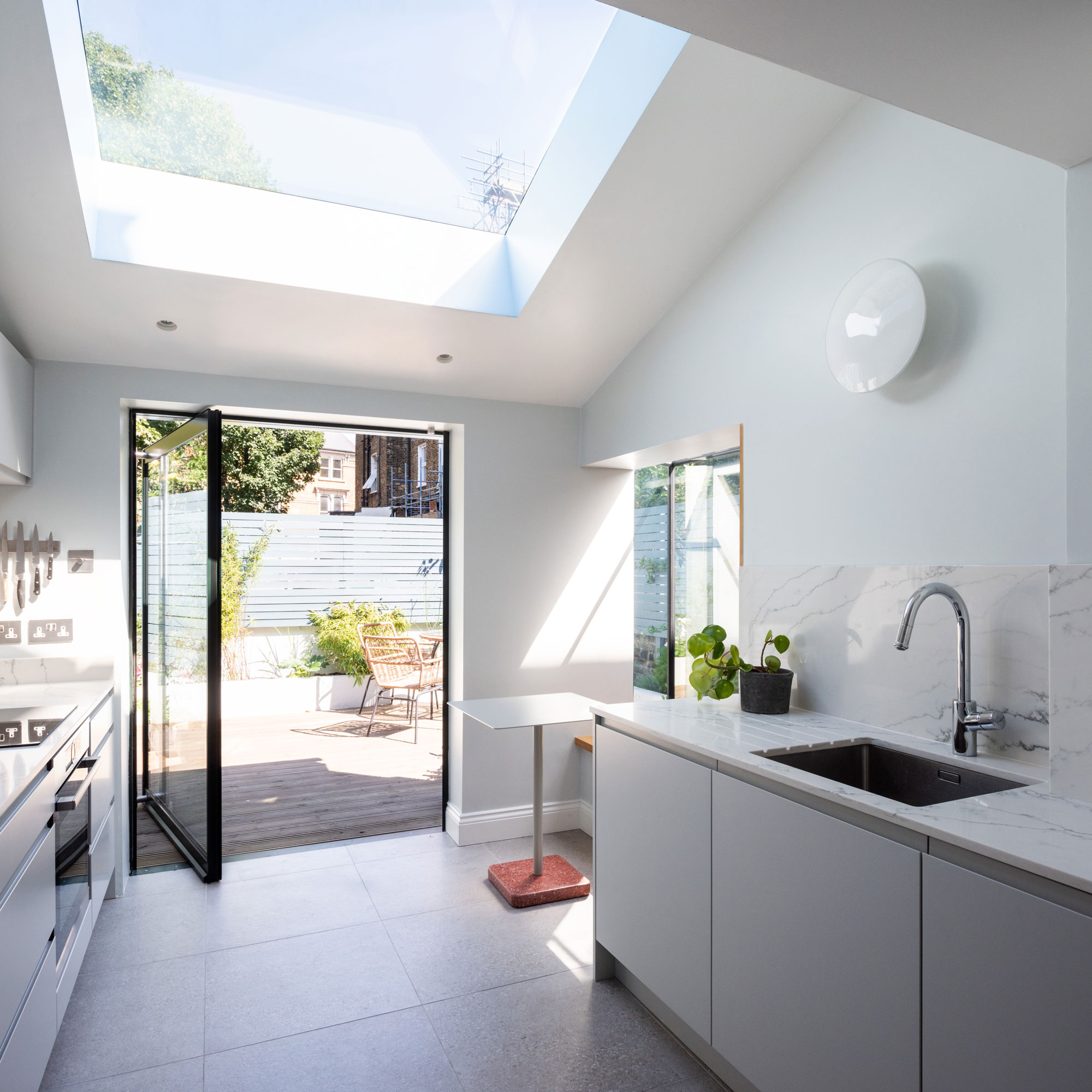
Single storey extensions are often the cheapest and most viable option, and could totally transform a small home, bringing in light, extra living space and opening up the house to the garden. For a standard quality extension you'd be looking at around £1,500 per metre square and approximately £2,500 per metre square plus for an excellent quality build. These costs exclude VAT.
The different cost levels does mean there are single storey extension ideas for every budget. You can introduce glazed doors and roof lights to bring light in, such as the huge roof light and large pivot door leading to the garden in this home.
This small kitchen extension is the work of Studio Bua – featuring a single pivot door, roof light and side box window. An architect designed extension like this would start at around £100k. Extension ideas for small houses can go a long way to changing how limited space is utilised, a worthwhile investment.
Side returns
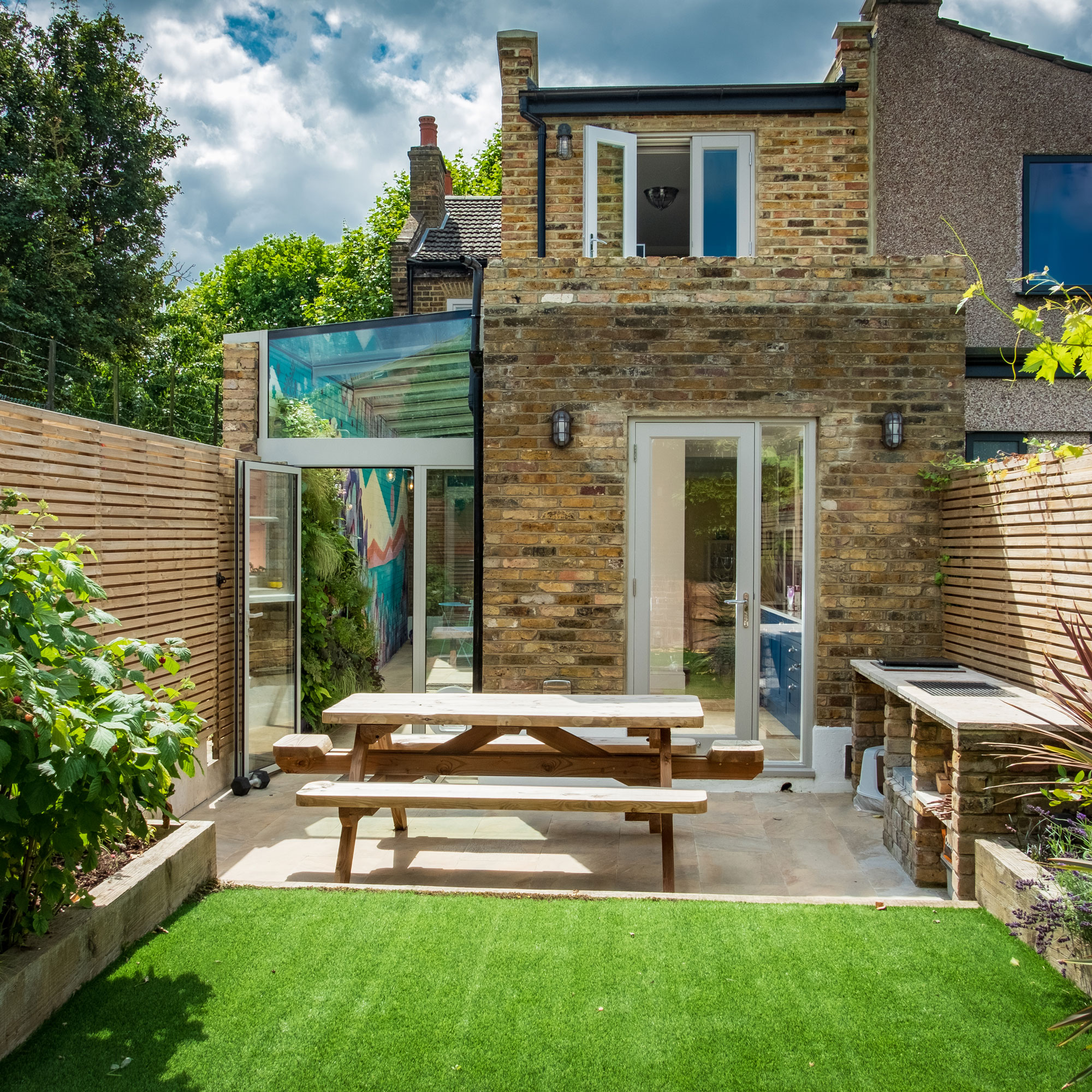
A lot of terraced or semi-detached houses, often from the Victorian era, have a small passageway at the side of the house which is often a dumping ground for bikes, the bins and garden stuff. This seemingly small space could be incorporated into the main house to give extra space with not too much upheaval. As this seemingly simple IQ Glass extension demonstrates. With minimal building chaos the kitchen is doubled in size and flooded with natural light.
Just a few feet can make all the difference and change the way you use the room, and if it’s part of a bigger rear extension, it can turn a dark narrow space into an airy, open-plan living space or kitchen diner.
A side extension would cost in the region of £2,250-2,500 per metre square, excluding VAT. But it does all depend on what finishes are used and whether solar control is included.
Buy 'off-the-shelf'
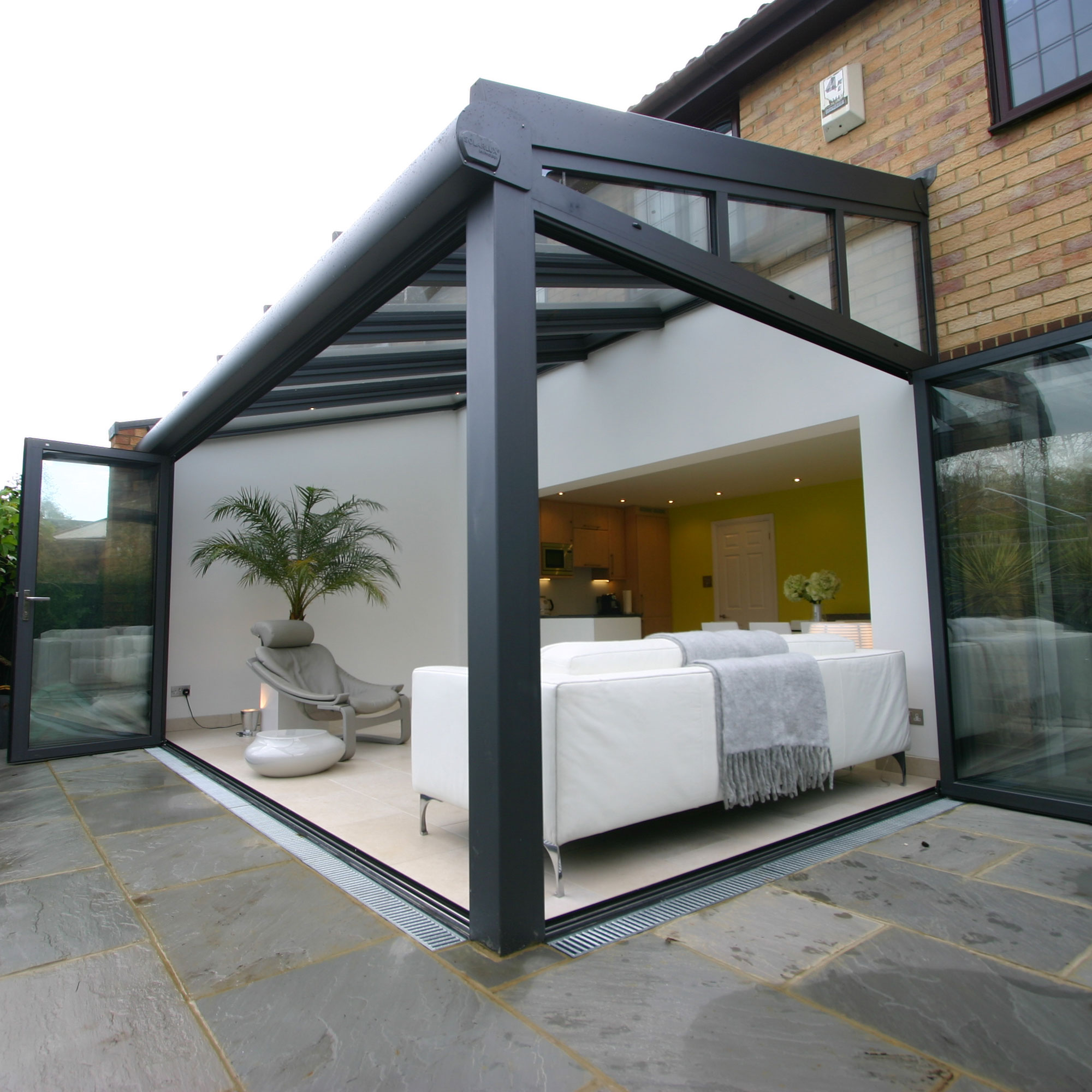
It is possible to buy ‘off-the-shelf’ glass extensions like this Solarlux Winter Garden. The Thames Valley Window Company creation that doesn’t require extensive building and is therefore less expensive. It’s a more cost-effective way to gain an extension and will save time and money. They start from £2,500 per metre square and there are four different styles to choose from.
Extensions from less than £15,000
A conservatory or Orangery

Traditionally, a conservatory was a building attached to the main house and was a place to grow plants, whereas orangeries were grand buildings used to grow orange trees in period homes. Nowadays, conservatory extension ideas and orangeries are pretty much the same thing - an extension of the main house to provide an extra room. They provide ideal space for a dining room or additional lounge area.
Conservatories and orangeries come under permitted development, so there is usually no need for planning permission.
Expect to pay around £10,000 for an off-the-shelf design while a 3.5m x 3.5m uPVC Victorian style conservatory would cost from around £12,750, according to Checkatrade.
Garage conversions
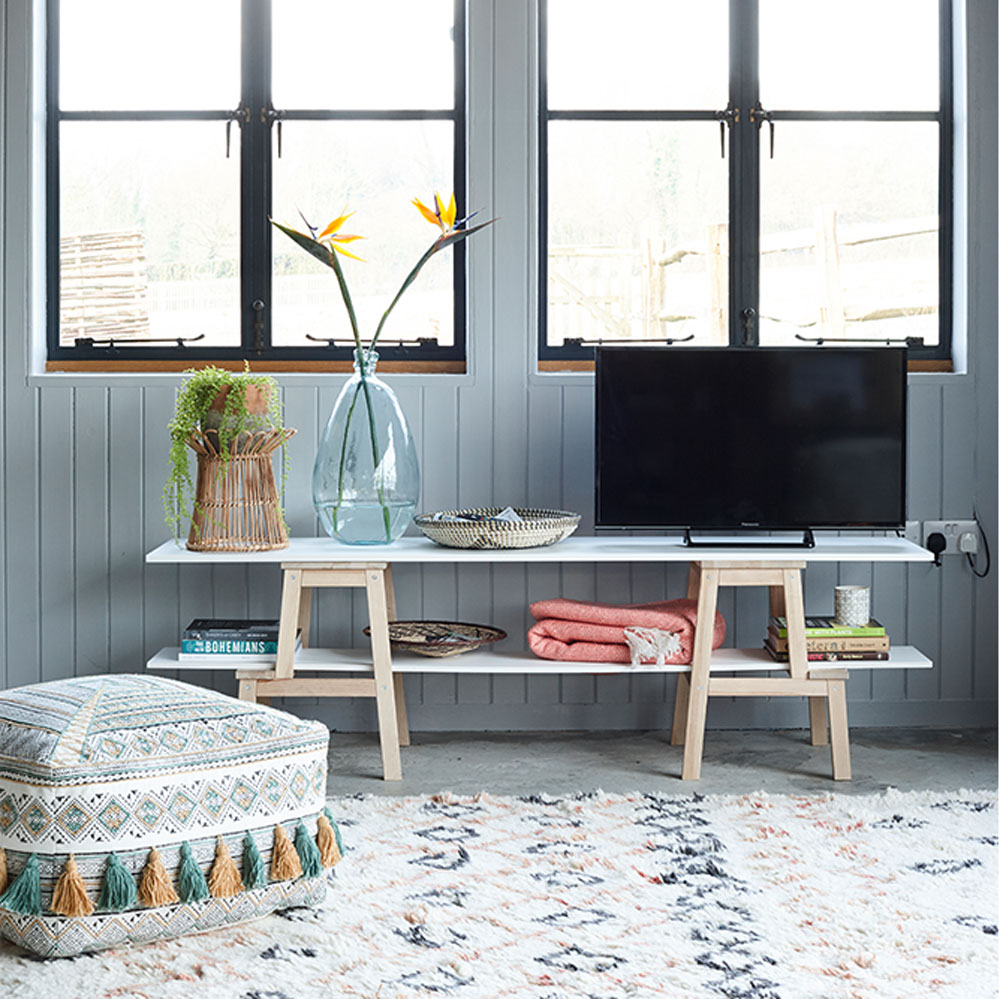
Garages become dumping grounds for all sorts of stuff and often the car doesn’t get a look-in, but it could be a much-needed extra room. Garages welcome extension ideas for every budget, because of the relatively simple nature of the build. The structure is already there, so it doesn’t need to be built from scratch, just converted, so it’s a cost-effective way to gain more living space.
'As a ballpark figure you can expect a typical 16m2 garage conversion to cost on average £15,000,' says quantity surveyor Tim Phillips of Quantiv.uk. 'That’s a great amount of extra space for an average cost of £950/m2.'
For an integral garage you should budget around £12,500; around £15,000 for an attached garage and around £20,000 for a detached garage conversion.'
Extensions from £50,000
Extensions from £50,000
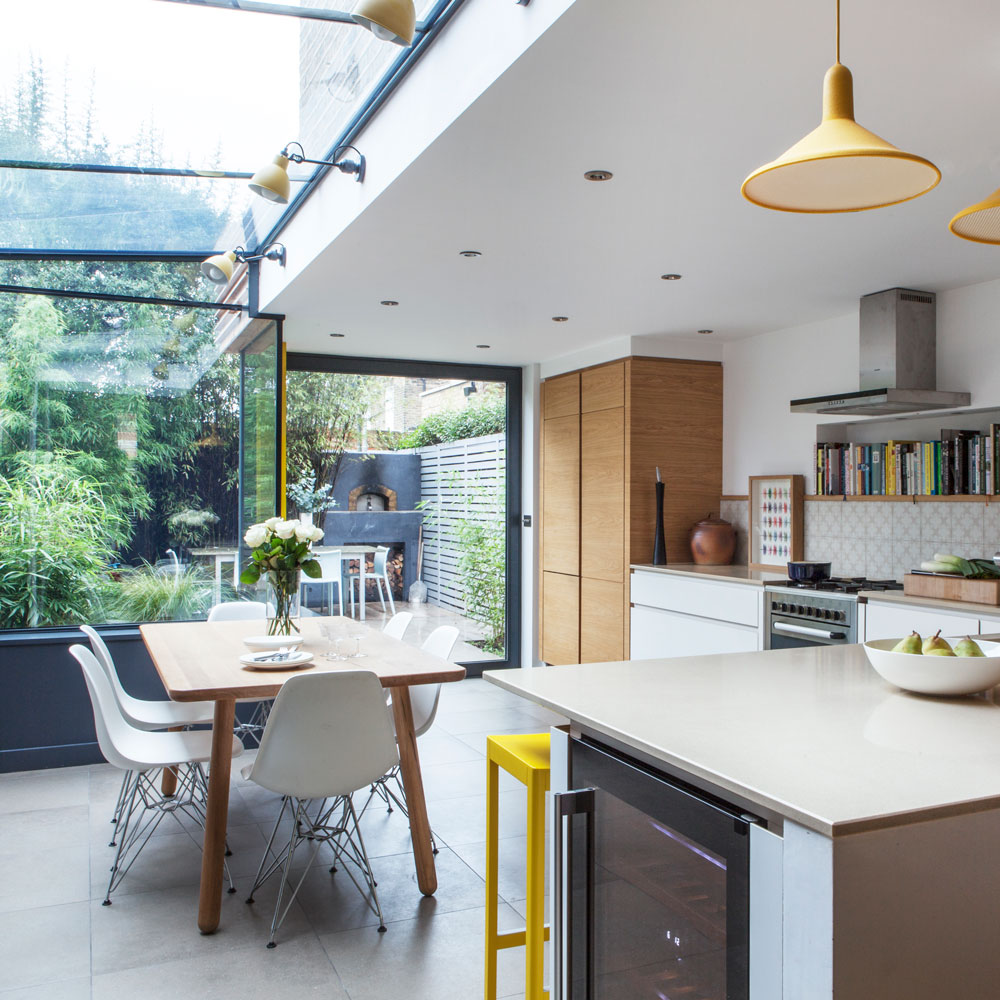
Most people embark on an extension to improve their kitchen, either because it’s small, dark or an awkward shape. Getting an architect and designer involved at an early stage is essential to get everything you want or sometimes a clever builder can create space you hadn’t even thought about. Expect to pay from £50,000 for a kitchen extension (construction only), but obviously it depends on the size and specification.
'Think of a kitchen extension as adding quality not quantity, by adding the things the existing room is missing - such as natural light, ceiling height, an interesting view, access to the garden etc.' says Howard Miller, of bespoke kitchen designers, H. Miller Bros.
'You can transform an existing room by adding just 3m2 if that space has a nice tall ceiling with a skylight, places to hang lighting or plants, a big picture window with a window seat or a beautiful view through a set of doors to the garden.'
Extensions from £75,000
Loft conversions
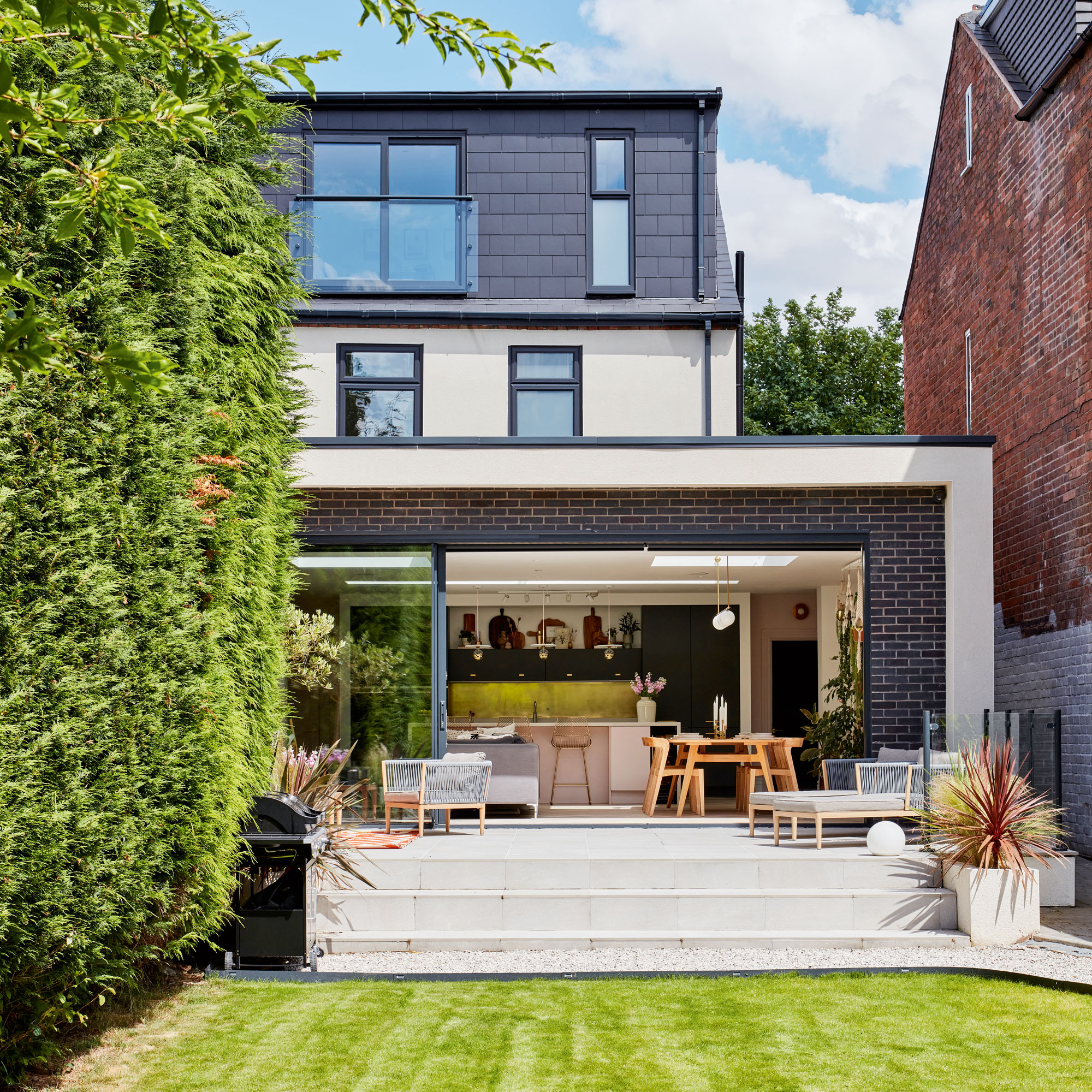
Utilising the roof space is a no-brainer, especially if you live in a top floor flat. It's also a popular extension ideas for bungalows. This Granit Architecture extension creates a wonderful light-filled space with the added benefit of a roof terrace. This has been created with two connected glass dormers on top of a terraced house and now offers a rooftop living room and study, and a bedroom and en-suite bathroom.
This extension would have a starting price of £75,000 as the loft already existed, it would be more expensive if a new storey had to be built.
FAQs
What is the cheapest way to extend my home?
The cheapest way to build an extension is to stick to some budget-friendly design principles in the first instance.
The simpler the design the more cost effective it'll be. Why? Lots of building materials, like plasterboard, and windows and doors, can be bought off-the-shelf in standard sizes. This means you won't have to pay for bespoke glazing or materials to be made or cut to size, which can really add to the cost of the product, as well as the labour, too.
Concrete blockwork and a concrete sub-floor tend to be the cheapest way to construct an extension. As well as the materials being cheaper, most trades are familiar with them so you won't need a specialist team to erect it.
Opting for a simple square or rectangular shaped build will also help keep you within budget, rather than introducing curved walls or glass, that would come with a premium price tag.
Try and steer away from having to deal with drains or trees when extending. If you have to deal with drains and a Build Over Agreement then this can add to your costs. As will the removal of trees. If either will cause major problems, consider converting your loft or garage to avoid these issues.
Will an extension add value to my home?
Extension ideas for every budget add value to a house, when done right. 'If an extension is an asset to a building and it is built to regulation and based on the design and materials all being used in the correct way, then this will certainly add value to your property.' Says David Conlon founder of En Masse Bespoke.
'Some extensions will add a far greater value to the property than the build cost, so this is certainly the sweet spot you should aim for in your design and budget stage. If you're concerned about the project paying for itself, it could be wise to consult an estate agent to gauge how much the property would increase in value with the extension in place.'
And if you add a kitchen extension? 'Extending what is often viewed as the prime part of the house, increasing the space and enhancing it with features like rear glass back drops, exposed steels and vaulted pitched roofs will increase not just usability of the house but also the saleability,' says James Bernard director of PlusRooms.
'A house extension will almost always add value to your home but the amount of value that an extension will add to a property’s value will vary considerably, depending on the size, style and complexity of the extension, not to mention the location of the property' says Mike Fairman of Checkatrade.
'In the UK, an average three bedroom house with an extension that creates a double bedroom with an en-suite bathroom can add up to 10-12% to the value of the property. It’s important to do your homework to understand how the design of your extension will impact the value it adds to your home. Adding double bedrooms and bathrooms tend to add the most value.'
Is it worth doing a small extension?
'The high costs of moving home, stamp duty etc. have had a significant impact on the housing market and it makes sense to investigate the possibility of extending your existing home,’ Says Richard Atkins, Director of Design at DesignSpace London.
'Whether it’s upwards, sideways or backwards, extensions can enhance natural light, link existing areas of the property to make better use of the space and improve the overall design. Turning a cramped space into something lighter and airer, and that works better for your family.'
So sometimes adding just a small extension can add real value to how you live in your home, regardless of the monetary value it does or doesn't deliver. If it's your forever home and a small extension will have a huge impact on how your home will work for you, then great. If you're looking to sell down the line, just make sure that the money you'll spend you'll recoup.
However, you might not need to extend at all. The space you already have might just need reworking.
'It’s important to do your research before committing to an extension,' says Keith Myers, managing director of The Myers Touch. 'I always ask clients “Do you really need an extension?” as very often clients have complicated spaces internally that aren't working correctly so they think the solution is to add more space and what you end up with is a more complicated space.
'Sometimes it’s not appropriate for clients to add an extension as they need to concentrate on reconfiguring the existing space which is more cost effective and achieves a better outcome in the sense of space.





